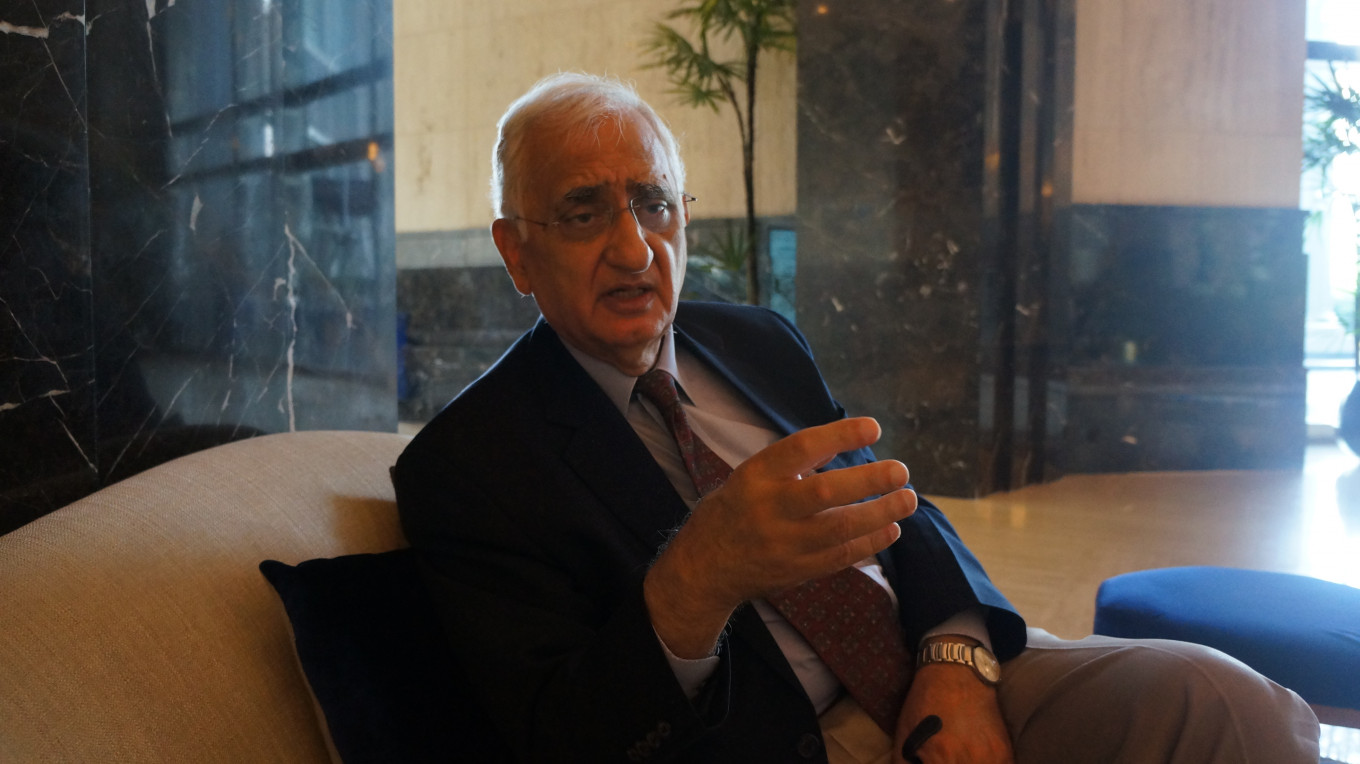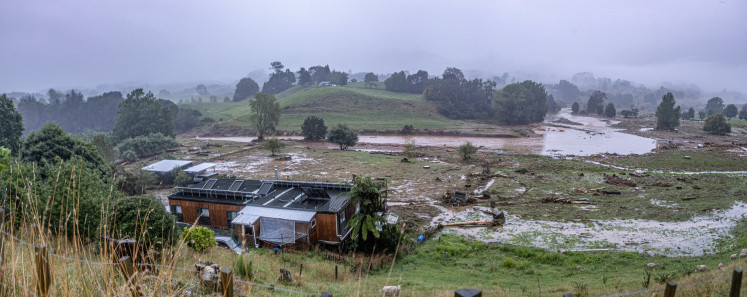Popular Reads
Top Results
Can't find what you're looking for?
View all search resultsPopular Reads
Top Results
Can't find what you're looking for?
View all search resultsIndia seeks Indonesian support amid Kashmir ceasefire, downplays nuclear threat
A senior politician who visited Jakarta recently as part of an Indian outreach delegation made reassurances that Delhi "had no interest in nuclear escalation" as it sought Indonesia's support in ending what it considered "terrorist" attacks involving Pakistan.
Change text size
Gift Premium Articles
to Anyone
A
n Indian delegation that visited Jakarta recently sought Indonesia’s support to end the worst fighting between India and Pakistan in nearly 30 years, while playing down concerns about a potential nuclear threat following recent missile exchanges.
The congressional delegation, led by Indian politician Sanjay Kumar Jha and comprised seven representatives across political lines, traveled to several Asian countries including South Korea, Singapore and Indonesia as part of an outreach campaign in the wake of the April 22 attack on tourists in Pahalgam in Indian-administered Kashmir.
During their Jakarta stop from May 28 to 31, the delegation met separately with representatives from the Golkar Party, the National Mandate Party (PAN) and Nahdlatul Ulama, the country’s largest Muslim organization.
Speaking to The Jakarta Post amidst the outreach efforts, Salman Khurshid, a senior leader of the Indian National Congress and former cabinet minister who was part of the delegation, emphasized that India had no interest in nuclear escalation and had exercised restraint despite provocation.
“We will never be the first to use nuclear weapons. Nobody has to worry. If they don’t use it, we don’t use it,” he said.
Khurshid’s remarks comes amid observers’ concerns raised after India’s missile strikes on Pakistan in early May, following the Pahalgam attack that killed 26 people.
New Delhi said at the time that it had targeted “terrorist headquarters”, but one of the sites hit was Nur Khan, an air base located less than 2 kilometers from the Strategic Plans Division overseeing Pakistan’s nuclear arsenal.
The strike prompted fears of escalation, and one professor at New York’s University at Albany told Reuters that the proximity made the attack appear “more threatening than intended”.
Khurshid dismissed the suggestion and insisted that India had limited its targets to military air bases, not nuclear infrastructure.
“We want Indonesia as a friend to support us [against terrorism]. And I hope that will be possible,” he said.
Indonesia, which maintains strong bilateral relations with both countries, has urged restraint and offered to mediate.
Earlier on May 16, Foreign Minister Sugiono said Jakarta was ready to play a role in facilitating peace talks between India and Pakistan.
Border clashes
Muslim-majority Kashmir, a region that is claimed in full by both India and Pakistan but partly administered by each, has long been a flash point between the nuclear-armed neighbors. The region has triggered several wars since both countries gained independence from Britain in 1947.
India has accused Pakistan of backing the Pahalgam attack, citing a long history of cross-border terrorism including the 2008 Mumbai and 2016 Uri attacks.
Islamabad has denied any involvement and condemned Delhi’s retaliatory strikes as “provocation of the highest order”, saying that none of the six locations hit were militant camps.
According to Khurshid, India had given Pakistan 14 days to investigate and punish those responsible for the Pahalgam attack before it launched Operation Sindoor, named after the red powder traditionally worn by married Hindu women but not widows.
In the ensuing clashes that left more than 70 people dead on both sides, Pakistan claimed to have shot down five Indian aircraft, including Rafale fighter jets.
After four days of intense fighting, Pakistan’s Military Operations Director General Maj. Gen. Kashif Abdullah contacted his Indian counterpart Lt. Gen. Rajiv Ghai via a military hotline, resulting in a ceasefire agreement.
Gen. Sahir Shamshad Mirza, chairman of Pakistan’s Joint Chiefs of Staff Committee, has since said Islamabad was open to dialogue, but confirmed that no direct communication beyond the military channel had taken place between the two countries.
“These issues can only be resolved by dialogue and consultations on the table. They cannot be resolved on the battlefield,” Mirza told Reuters on May 30.










